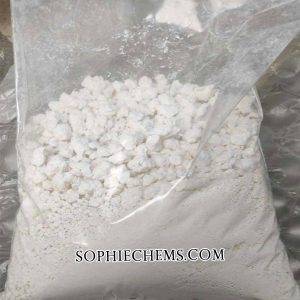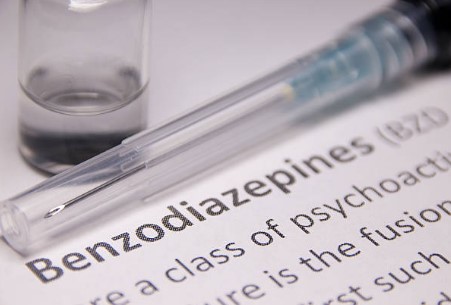Depression is a common mental health disorder that affects millions of people worldwide. It can manifest in various forms and can have a significant impact on an individual’s daily life. If you suspect that you or a loved one may be experiencing depression, it is essential to seek professional help. One of the first steps in diagnosing depression is taking a depression test. In this article, we will discuss the top depression tests to consider and how they can help in identifying and managing depression.
What Is a Depression Test?
A depression test, also known as a depression screening or a mood questionnaire, is a tool used to assess an individual’s symptoms and determine if they may be experiencing depression. These tests are not meant to provide a definitive diagnosis but can be a helpful starting point in identifying potential mental health concerns.
The Great Depression and New Deal Unit Test
by Kat Love (https://unsplash.com/@katlove)
The Great Depression and New Deal Unit Test is a multiple-choice test that assesses an individual’s knowledge of the Great Depression and the New Deal. While this test is not specifically designed to diagnose depression, it can be a useful tool in identifying potential risk factors for depression. For example, if an individual struggles with understanding or recalling information related to the Great Depression, it may indicate cognitive difficulties that could be linked to depression.
Shoulder Depression Test
The Shoulder Depression Test is a physical exam that can help identify potential shoulder injuries or conditions. However, it can also be a useful tool in identifying symptoms of depression. During this test, the individual is asked to raise their arms to their sides and then lower them slowly. If the individual experiences pain or difficulty in performing this movement, it may indicate a shoulder injury. However, if the individual also experiences feelings of sadness or hopelessness during the test, it may indicate symptoms of depression.
Mood Questionnaire
A mood questionnaire is a self-assessment tool that asks individuals to rate their feelings and emotions on a scale. This test can help identify potential symptoms of depression, such as feelings of sadness, hopelessness, or lack of interest in activities. It can also assess other mood disorders, such as anxiety or bipolar disorder.
High Functioning Depression Test
by Samia Liamani (https://unsplash.com/@mialiamani)
High functioning depression, also known as persistent depressive disorder, is a form of depression where individuals experience symptoms for an extended period, but can still function in their daily lives. The High Functioning Depression Test is a self-assessment tool that can help identify potential symptoms of this type of depression. It asks individuals to rate their feelings and behaviors over the past two weeks, including symptoms such as low energy, difficulty concentrating, and feelings of hopelessness.
Seasonal Depression Test
Seasonal depression, also known as seasonal affective disorder (SAD), is a type of depression that occurs during specific seasons, typically in the fall and winter months. The Seasonal Depression Test is a self-assessment tool that can help identify potential symptoms of SAD. It asks individuals to rate their feelings and behaviors over the past two weeks, including symptoms such as changes in appetite, low energy, and difficulty sleeping.
Smiling Depression Test
Smiling depression is a form of depression where individuals appear happy and successful on the outside but are struggling with depression internally. The Smiling Depression Test is a self-assessment tool that can help identify potential symptoms of this type of depression. It asks individuals to rate their feelings and behaviors over the past two weeks, including symptoms such as feeling empty or numb, difficulty sleeping, and thoughts of self-harm.
2 mm ST Depression on Stress Test
by Ben Mullins (https://unsplash.com/@benmullins)
A stress test is a medical procedure that measures the heart’s response to physical activity. During this test, the individual is asked to walk on a treadmill or ride a stationary bike while their heart rate and blood pressure are monitored. A 2 mm ST depression on a stress test can indicate potential heart problems, but it can also be a sign of depression. This is because depression can affect the heart’s functioning and lead to changes in heart rate and blood pressure.
Depression Test Free
There are many free depression tests available online, but it is essential to be cautious when using these tests. While they can be a helpful starting point, they should not be used as a substitute for professional diagnosis and treatment. It is always best to seek guidance from a mental health professional for an accurate diagnosis and treatment plan.
Bipolar Depression Test
Bipolar disorder is a mental health condition that causes extreme shifts in mood, energy, and activity levels. The Bipolar Depression Test is a self-assessment tool that can help identify potential symptoms of bipolar disorder, including periods of depression and mania. It asks individuals to rate their feelings and behaviors over the past two weeks, including symptoms such as impulsivity, irritability, and changes in sleep patterns.
How Can Depression Tests Help?
Depression tests can be a helpful tool in identifying potential symptoms of depression and other mood disorders. They can also assist in determining the severity of symptoms and the appropriate course of treatment. Additionally, taking a depression test can help individuals recognize that they may be experiencing depression and encourage them to seek professional help.
When to Seek Professional Help
by Online Marketing (https://unsplash.com/@impulsq)
If you or a loved one is experiencing symptoms of depression, it is essential to seek professional help. A mental health professional can provide an accurate diagnosis and develop a personalized treatment plan. Some signs that it may be time to seek professional help include:
- Persistent feelings of sadness, hopelessness, or emptiness
- Loss of interest in activities once enjoyed
- Changes in appetite or weight
- Difficulty sleeping or sleeping too much
- Fatigue or low energy
- Difficulty concentrating or making decisions
- Thoughts of self-harm or suicide
Conclusion
Depression is a common mental health disorder that can have a significant impact on an individual’s daily life. If you suspect that you or a loved one may be experiencing depression, it is essential to seek professional help. Depression tests can be a helpful tool in identifying potential symptoms and determining the appropriate course of treatment. However, they should not be used as a substitute for professional diagnosis and treatment. If you or a loved one is experiencing symptoms of depression, reach out to a mental health professional for support and guidance.











Leave a comment
You must be logged in to post a comment.